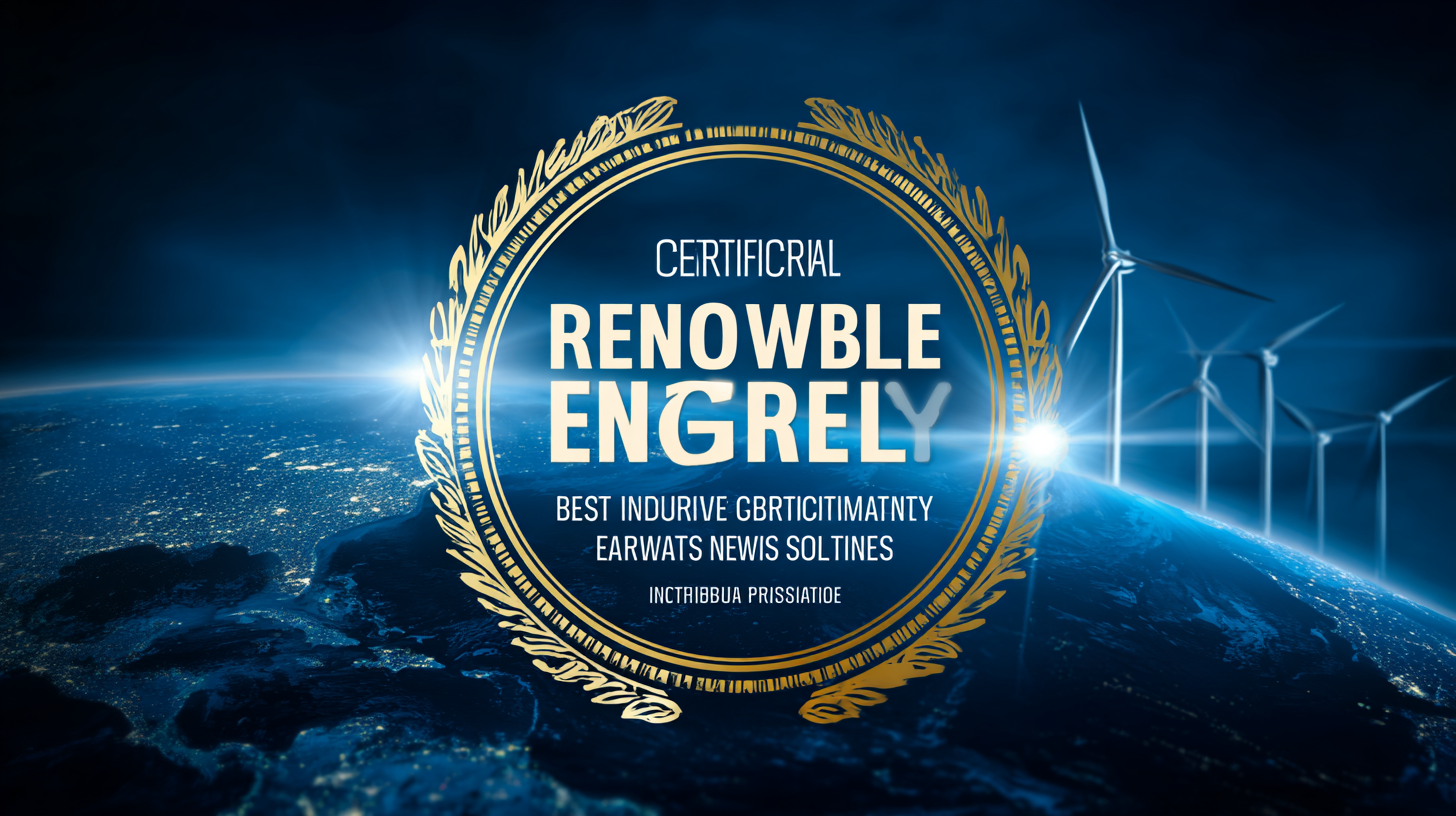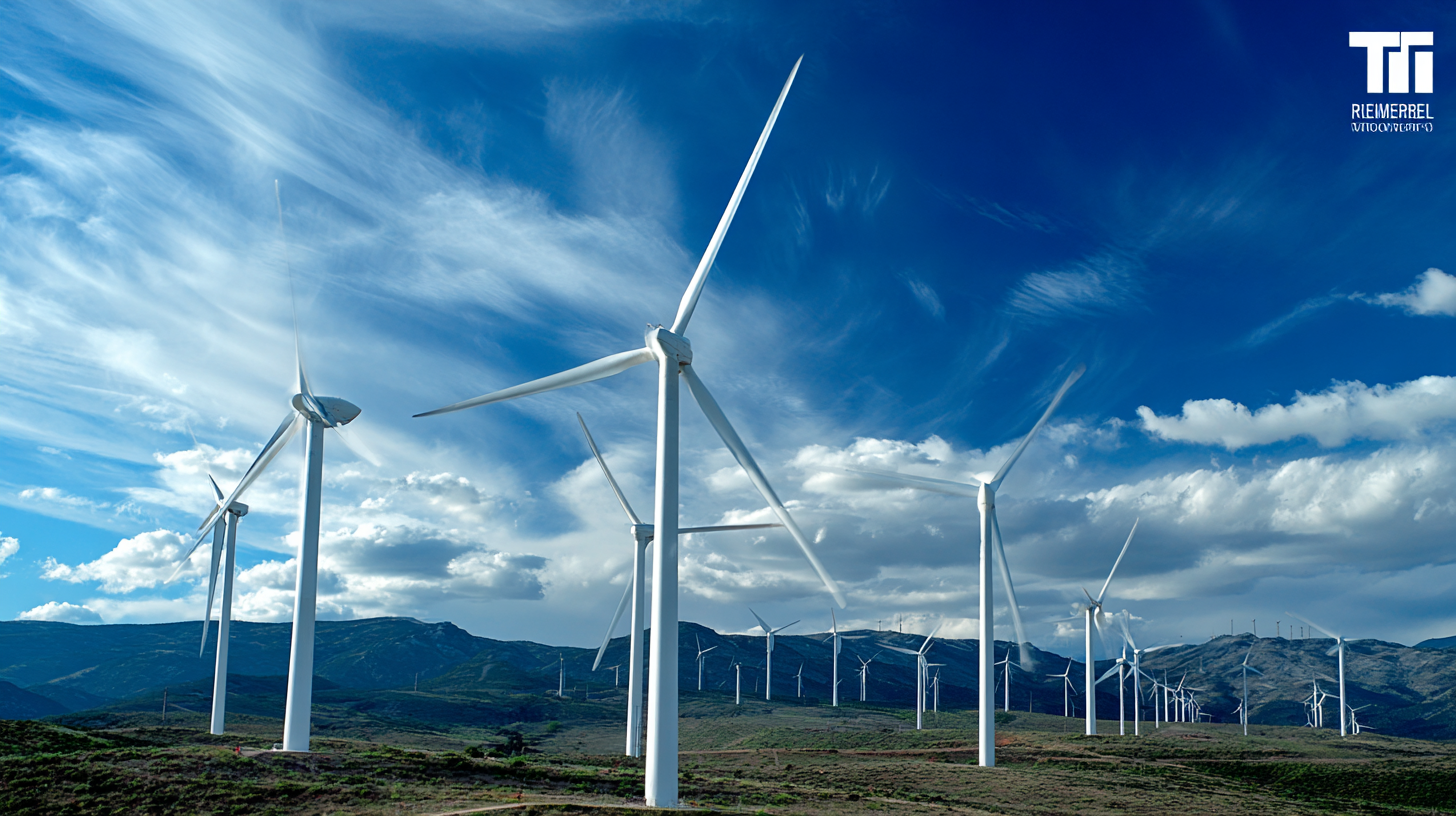In an increasingly interconnected global economy, the role of import-export certifications has become paramount in realizing the full potential of Renewable Energy solutions. According to the International Renewable Energy Agency (IRENA), global renewable energy capacity has surged to over 2,800 gigawatts as of 2021, underscoring a rapid transition towards sustainable energy sources. However, as countries strive to meet ambitious climate goals, navigating the complexities of international trade in clean energy technologies requires adherence to specific regulatory frameworks and certifications.

Reports from the World Bank highlight that approximately 75% of countries have established trade barriers that can hinder the flow of renewable energy products, making certifications not only beneficial but essential. This blog will delve into the vital importance of these certifications in unlocking global markets and facilitating the widespread adoption of the best Renewable Energy solutions available today.
In today’s rapidly evolving landscape of global trade, the significance of import-export certifications cannot be overstated, particularly within the renewable energy sector. As countries strive to meet their renewable energy goals, the certification processes help ensure compliance with international standards, facilitating smoother market access. For instance, as highlighted in reports detailing the burgeoning demand for renewable energy technologies, the global market is projected to grow significantly, with electric vehicles and biofuels leading the charge. In fact, the International Renewable Energy Agency anticipates that by 2030, renewable energy could account for over 70% of global electricity generation, underscoring the vital role of certified products in this transition.
Moreover, India's ambition to enhance its trade competitiveness parallels the global shift towards green technologies. The updates under the Foreign Trade Policy 2023 aim to streamline import-export procedures, thus reinforcing the importance of certifications. Continuous improvements in these frameworks can boost India's exports of renewable solutions, positioning the nation as a contender in this thriving market. According to industry reports, adherence to standardized certification processes ensures that products meet environmental and safety requirements, making them more appealing in international markets, particularly amidst a robust emphasis on sustainable practices globally.

In the rapidly evolving landscape of renewable energy, understanding key technical specifications is vital for ensuring the effectiveness and efficiency of solutions. Technologies such as solar panels, wind turbines, and battery storage systems are only as good as their design specifications. For instance, a solar panel's efficiency is often determined by its conversion rate, which measures how much sunlight is converted into usable electricity. Higher efficiency panels maximize energy output and minimize the space required for installation, making them essential for both residential and commercial applications.

Moreover, comprehensive import-export certifications can significantly enhance market access for these renewable technologies. Certifications serve as proof that products meet international standards, ensuring reliability and safety. For example, wind turbines must adhere to specific wind load and performance criteria to be considered effective in varying climate conditions. Understanding these technical specifications not only aids manufacturers in meeting compliance but also helps consumers make informed decisions when selecting renewable energy solutions that best suit their needs. When companies leverage these certifications combined with robust technical understanding, they are better positioned to enter global markets and contribute to a sustainable energy future.
Navigating the import-export landscape in the renewable energy sector requires a deep understanding of the essential certifications that ensure success. These certifications not only facilitate compliance with international regulations but also enhance product credibility. For instance, certifications like ISO 50001 for energy management or IEC standards for solar panels are crucial for businesses aiming to penetrate foreign markets. They signal to potential partners and customers that the products meet high-quality standards, thus fostering trust and facilitating smoother transactions.
Moreover, obtaining the right certifications can significantly streamline the import-export process. Documents such as Certificates of Origin and compliance reports can prevent delays at customs, ensuring products reach their destinations on time. With the increasing focus on sustainable energy, having the appropriate environmental certifications—like Green Seal or Energy Star—can also provide a competitive edge. In a market where buyers are more discerning about eco-friendliness, these certifications are not just added benefits; they can be the deciding factor in securing contracts and expanding market reach.
| Certification Type | Description | Region of Recognition | Validity Period | Cost (USD) |
|---|---|---|---|---|
| ISO 14001 | Environmental Management System | Global | 3 years | 1500 |
| CEMAR | Renewable Energy Certification | EU | 5 years | 2000 |
| RECS | Renewable Energy Certificates | EU, NZ | 1 year | 750 |
| FSC | Forest Stewardship Council Certification | Global | 5 years | 1200 |
| LEED | Leadership in Energy and Environmental Design | Global | 5 years | 2500 |
As the world increasingly shifts towards renewable energy solutions, understanding market trends is essential for businesses seeking to expand their global reach. The projected market size for renewable energy technologies is set to soar, indicating a robust growth trajectory leading up to 2032. This surge can be attributed to the rising demand for sustainable energy sources, particularly as governments worldwide implement stricter environmental regulations and consumers become more environmentally conscious.
With substantial investment anticipated in sectors like artificial intelligence and data centers, companies must navigate the intricate landscape of import-export certifications. These certifications not only facilitate entry into international markets but also enhance trustworthiness and compliance with local regulations.
**Tips for Companies:**
1. **Stay Informed:** Regularly review global trade data to identify emerging markets and adapt strategies accordingly.
2. **Invest in Certifications:** Prioritize acquiring relevant import-export certifications to streamline operations and build credibility in new markets.
3. **Leverage Trends:** Utilize insights from the burgeoning renewable energy sector to innovate and position your offerings effectively against competitors.
By focusing on these strategies, businesses can effectively unlock opportunities in the ever-evolving global market for renewable energy solutions.
Achieving compliance with international renewable energy standards is crucial for companies aiming to tap into global markets. Recent data from the International Renewable Energy Agency (IRENA) highlights that global renewable energy capacity reached 2,799 GW in 2020, indicating a robust demand for compliant energy solutions. Import-export certifications ensure that products meet necessary regulations, facilitating smoother transactions and fostering trust among international stakeholders. For instance, adherence to ISO 14001 for environmental management can significantly enhance a company's standing in the competitive clean energy sector.
To navigate the regulatory landscape, companies must stay abreast of various certifications required in different regions. According to a report from the World Trade Organization, over 60% of trade disputes in the renewable sector arise due to non-compliance with certification standards. By obtaining certifications such as the Global Renewable Energy Certification (G-REC) or complying with the EU’s Renewable Energy Directive, firms not only enhance their marketability but also align with sustainable practices critical for long-term growth. As the transition to renewable energy accelerates, the importance of these certifications will only grow, serving as a vital link to achieving sustainable development goals worldwide.